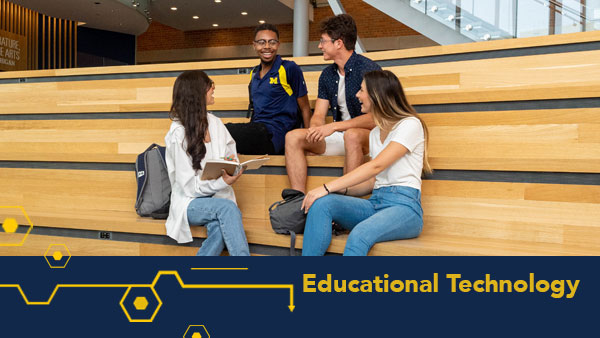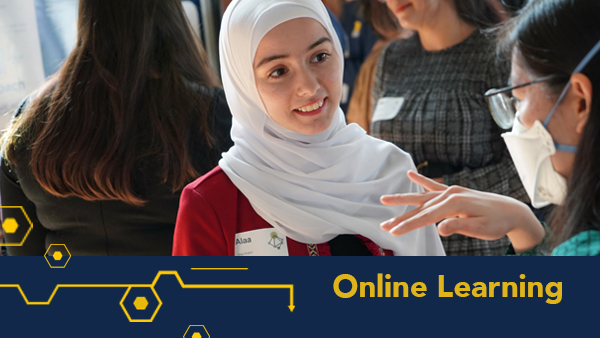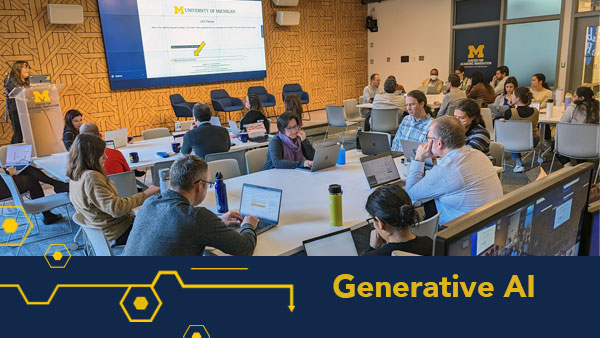Cait Holman, PhD Candidate, School of Information – @chcholman
Barry Fishman, Professor, Learning Technologies, School of Information & School of Education – @BarryFishman
The next time you see someone playing a videogame, stop and watch for a moment: they are engaged in what they’re doing. They may have an intense look about them, and it doesn’t seem like what they’re doing is what we’d call ‘easy’ – they lose a round, they get frustrated, but they keep playing. They come back. They try it again. When they finally win they may start all over again, playing the game in a completely different way, looking beyond linear progress for additional opportunities – things like secret routes, new interactions, and different ways to collaborate with a community of other players. There is something about the experience of playing these games that makes them spaces where people of all ages and interests are willing to work hard, persist past failure, and learn how to succeed. Gameful learning is a new pedagogical approach that takes inspiration from the engagement we see in videogames, and uses it to reimagine what traditional learning environments could be like – particularly, what role students can play and how the design of assessment systems supports student engagement.
First, a disclaimer: gameful learning is not about making school easy…or even fun. This is about designing environments where students are encouraged to focus less on their final grades, and more on the craft of learning; where they are motivated to face down the very real struggles of mastering challenging new material, but persist day after day and are able to see progress; where they take responsibility for their learning, and make self-aware choices regarding how they can best learn and be assessed on their development of content mastery. We know from psychological research that this mode of self-driven, creative, resilient drive to progress, termed “intrinsic motivation,” is best supported when individuals feel like they have meaningful control over their work (autonomy), are facing challenging but doable work (competency), and feel connected to the people around them (belongingness).
So how do we create these environments? We begin by flipping the frame from an assessment system where everyone starts with 100%, because that is a lose-as-you-go scheme, where each new grade decreases a student’s class average (the current normative model for grading systems), to a 0-based, earn-up model, where each assessment increases the student’s cumulative points and represents his/her progress towards mastery. Then we build a series of optional assessment pathways so that students have autonomy over how to engage with course content. These can take a variety of forms – sometimes the content lends itself to students developing deep personalized specializations, as an offshoot of the core content studied collectively. At other times it means students complete different forms of assessment around the same content – with some choosing to take an exam, while others might write an essay or do a group project.
These changes introduce a logistical challenge: students need to know how the range of choices build towards their course grade. In gameful systems, instructors typically create more assignments than students actually to need to complete to earn an A in the course. This can be as many as 1.5 – 2 times the number of assignments in a normal course. In our early experiments with gameful grading systems, we observed a huge amount of excitement from students, but also a lot of confusion. We realized we needed technology to support students in gameful courses, and so we created GradeCraft, a platform to pair with (or replace) a traditional learning management system and allow students to visualize their own progress and plan for their future. You can see a short video about GradeCraft and how it supports gameful instruction here. Follow us at @gradecraft.
We’ve spent the last three years growing the pedagogy and GradeCraft in parallel, iteratively designing GradeCraft to support the best practices we’re discovering in the classroom. This work has been developed in partnership with DEI and the Learning Analytics Task Force. Now we’re thrilled to announce that, thanks to the generous support of the University of Michigan Third Century Fund, we have the opportunity to continue to grow the gameful learning community here at Michigan, and make GradeCraft available to all.


